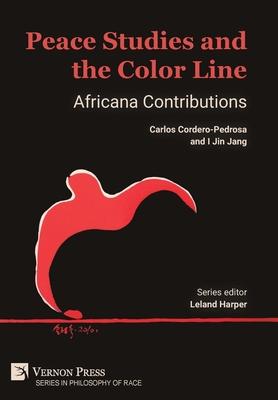The book aims to continue and expand the conversations emerging from the margins of peace studies about race and racism, and their implications for the field. Especially drawing from the often-overlooked African diasporic critical and philosophical tradition -with an emphasis on Africana phenomenology and existentialism- the book addresses questions that are central in Africana thought yet remain under-explored in peace studies. This enables to rethink peace studies' assumptions, conceptual frameworks, and epistemic and normative elements. Inter- or transdisciplinary dialogue requires a profound re-evaluation of what constitutes the exclusions in both knowledge and politics. This, in turn, necessitates a critical examination of the structures and organization of knowledge, a deeper understanding of the field's identity, its foundational narratives and presuppositions, a reassessment of the relations with other disciplines and areas of knowledge, and the histories, the subjects and the forms of agency that it privileges. Taking race and racism seriously through African diasporic thought entails, among others, reconsidering the ties of peace studies with international relations and liberal political theory, bringing to the forefront the question of freedom, examining the relationship between the ethical and the political, and complicating the distinction between violence and nonviolence.

Peace Studies and the Color Line: Africana Contributions
The book aims to continue and expand the conversations emerging from the margins of peace studies about race and racism, and their implications for the field. Especially drawing from the often-overlooked African diasporic critical and philosophical tradition -with an emphasis on Africana phenomenology and existentialism- the book addresses questions that are central in Africana thought yet remain under-explored in peace studies. This enables to rethink peace studies' assumptions, conceptual frameworks, and epistemic and normative elements. Inter- or transdisciplinary dialogue requires a profound re-evaluation of what constitutes the exclusions in both knowledge and politics. This, in turn, necessitates a critical examination of the structures and organization of knowledge, a deeper understanding of the field's identity, its foundational narratives and presuppositions, a reassessment of the relations with other disciplines and areas of knowledge, and the histories, the subjects and the forms of agency that it privileges. Taking race and racism seriously through African diasporic thought entails, among others, reconsidering the ties of peace studies with international relations and liberal political theory, bringing to the forefront the question of freedom, examining the relationship between the ethical and the political, and complicating the distinction between violence and nonviolence.